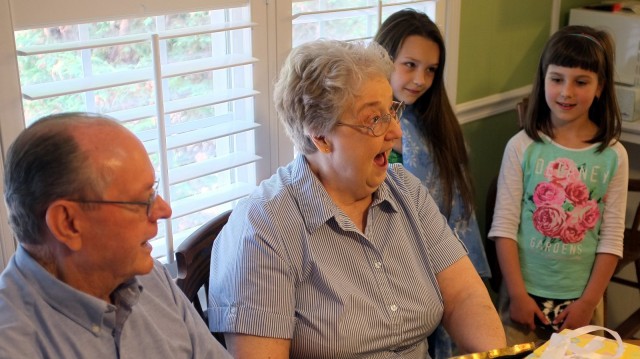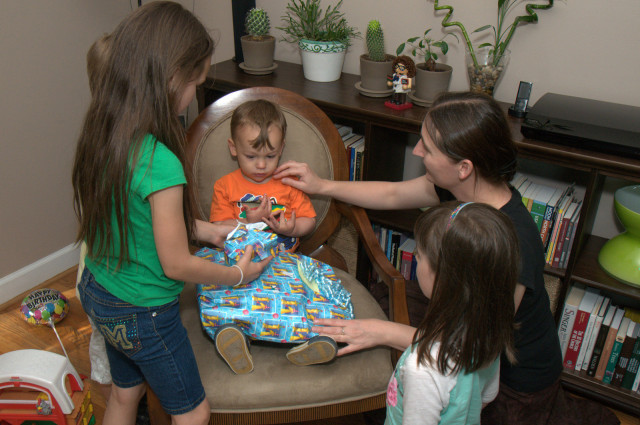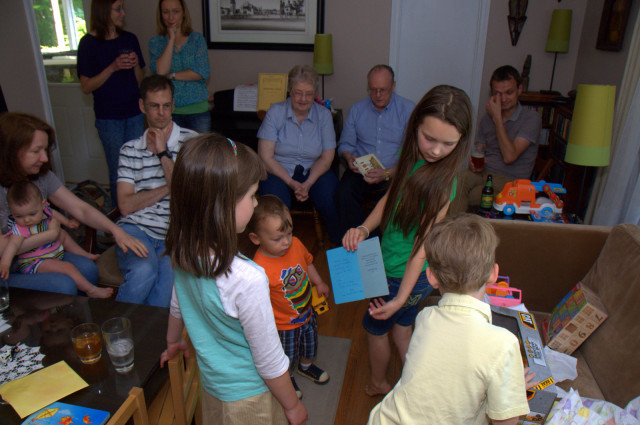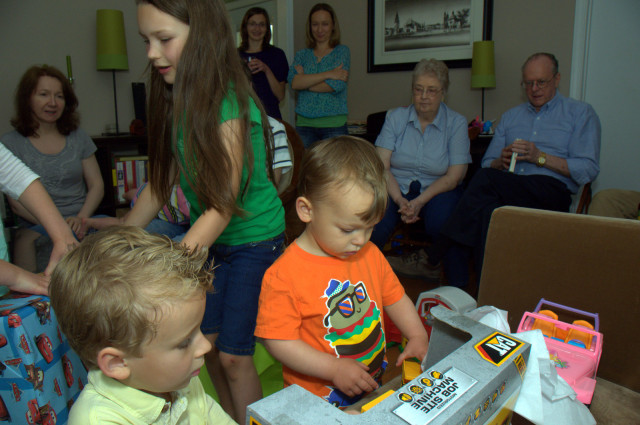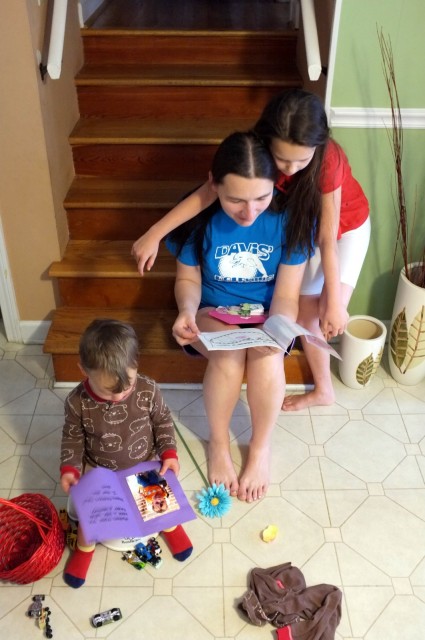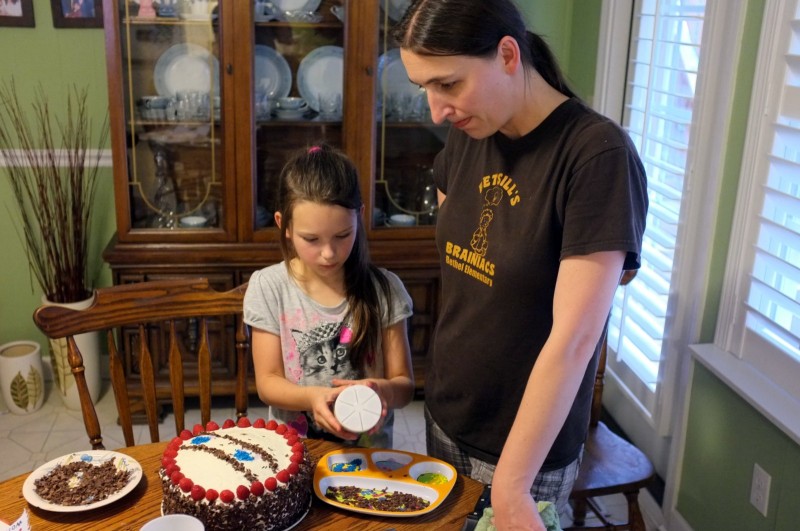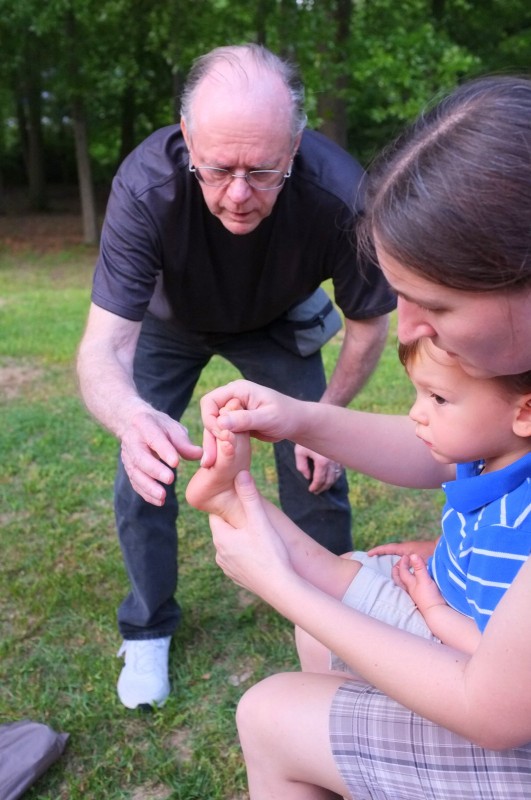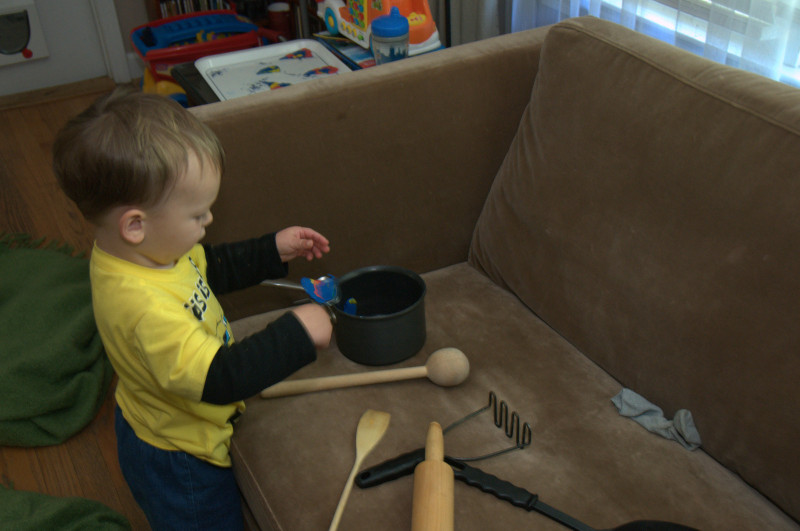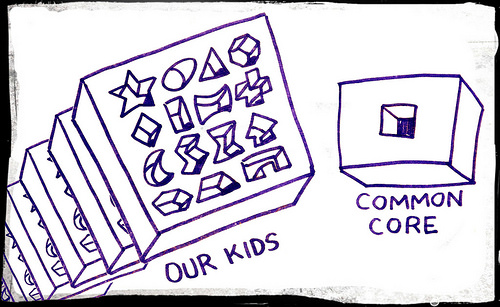“Today is a triple header,” Father Boyle said today at Mass. “Mother’s Day, Good Shepherd Sunday, and First Communion.” He left out one thing: E’s Happy Birthday.
First, food.
Grilled onions, hamburgers, hot dogs, grilled corn, Greek spinach salad, Black Forest cake, and fresh fruit.
With a beginning like that, what could go wrong? Sure, not everyone’s crazy about hot dogs. Sure, the idea of grilled corn Indian style (i.e., smeared with lemon dipped in Cayenne pepper) sets some people on fire. Sure, not everyone likes strawberries. (Really? On what planet?) Still, food brings people together like few other things. Perhaps that’s why the Lord’s Supper is just that. Breaking bread together is truly an ancient tradition.
Perhaps not as ancient as some traditions, like motherhood. By now, it’s almost cliche, but where would we be without mothers? Silly question; silly tradition. We shouldn’t need a special day to honor our mothers. We should be doing it on a daily, no hourly basis.But we don’t, so it’s for the best that one day a year we decide deliberately to honor our mothers. Our fathers have to wait another month.
But E: he only had to wait for the cake.
And then came the fun. For E, the present selection process was simple: anything with wheels. Is it a cliche? Who cares — he is simply obsessed with any and all vehicles, and knowing this simplified present choices for everyone.
But the real present of true he received long ago, when I was so blessed to marry the woman I married. L’s best present, too. And mine.
Theoretically unnecessary or not (come on — must we be reminded to be thankful for those who cleaned our backsides and spanked them too?), I’m still glad we have Mother’s Day.


